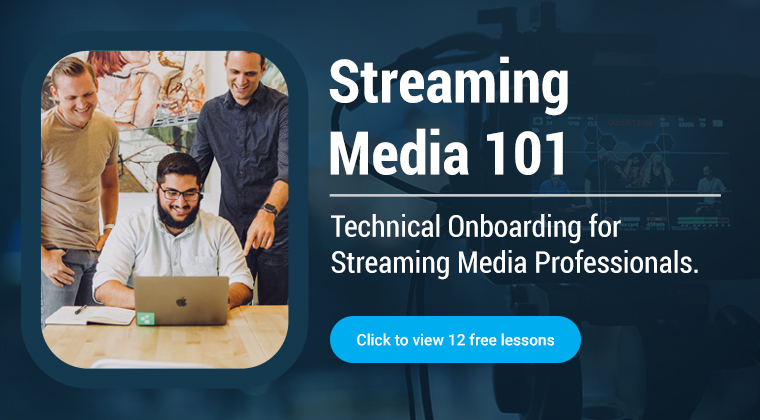Here's a video I produced for OnlineVideo.net that shows how a free tool called MPEG Streamclip, which runs on both the Mac and Windows platforms, can trim and perform other edits and save the result without re-encoding your file. It can be incredibl
Read More »The Essential Key to Producing High Quality Streaming Video
I like making money as much as the next guy, but the last three or four consulting clients all shared a problem so basic that I was almost embarrassed to take their money. Specifically, they came to me concerned about poor video quality, and the
Read More »Jan Ozer interview about Video Compression for Adobe Flash, Apple Devices and HTML5
I chatted with Peter Cervieri of Scribe Media at Streaming Media East in New York City last month. Peter was kind enough to ask about my new book, Video Compression for Adobe Flash, Apple iDevices and HTML5, which I describe in this excerpt. S
Read More »Roundtrip Audio Editing Workflow: Adobe Premiere Pro and Audition CS5.5
One of my favorite features in Adobe Creative Suite 5.5 is the return of Adobe Audition. In this tutorial, I detail the round trip editing workflow between Premiere Pro and Audition. Roundtrip Audio Editing Workflow: Adobe Premiere Pro and Audition CS5.5 from EventDV on Vimeo.
Read More »H264 vs MPEG-2 Quality
I recently produced a webinar for Broadcast Engineering Magazine where I compared the quality of the same test footage encoded using the H.264 and MPEG-2 codecs. Since most production encoding in the broadcast space is live, I used encoding using constant bit rate encoding and limited both codecs to the Main profile, since not all playback devices support the high …
Read More »Book Excerpt: Streaming Vs. Progressive Download Vs. Adaptive Streaming
Here’s an excerpt from my (Jan Ozer) new book, Video Compression for Flash, Apple Devices, and HTML5. It’s important to recognize that when you deliver video over the Internet, you have multiple options, including streaming, progressive download, and adaptive streaming. Note that the mode you choose may have a significant impact on how you produce your files. Streaming Experientially, the …
Read More »Webinar on Webcasting is Up (and looks great!)
On Tuesday (5/24), as part of an upcoming review of Sonic Foundry’s Mediasite rich media communications program, I participated in a webinar from Madison Wisconsin. Here’s the description: Sonic Foundry is proud to host live streaming expert Jan Ozer who literally wrote the book on digital video. He’s been teaching courses on streaming video for nearly 20 years, and during …
Read More »Resources for Sonic Foundry Webcast
Here are some resources discussed in my Sonic Foundry Webcast. Presentation in PDF format Planning mindmap Background checklist Clothing checklist Flat lighting tutorial Three-point lighting tutorial Shooting skills tutorials (including controlling exposure)
Read More »What’s New in the Adobe Media Encoder CS5.5 Video
I produced a video for EventDV on new features in Adobe Media Encoder CS5.5. Here’s the official description: Video production and compression expert Jan Ozer takes a look inside Adobe Media Encoder CS5.5, exploring new features such as new presets and project drag-and-drop from After Effects and Premiere Pro and explaining how to use new features such as Watch folders …
Read More »Ozer releases book: Video Compression for Flash, Apple Devices and HTML5
FOR IMMEDIATE RELEASE Ozer releases book: Video Compression for Flash, Apple Devices and HTML5 New book helps streaming producers navigate the confusing waters of live and on-demand delivery to multiple platforms, covering both adaptive and single file delivery. New York City – May 9, 2011 – At StreamingMedia East in New …
Read More » Streaming Learning Center Where Streaming Professionals Learn to Excel
Streaming Learning Center Where Streaming Professionals Learn to Excel


